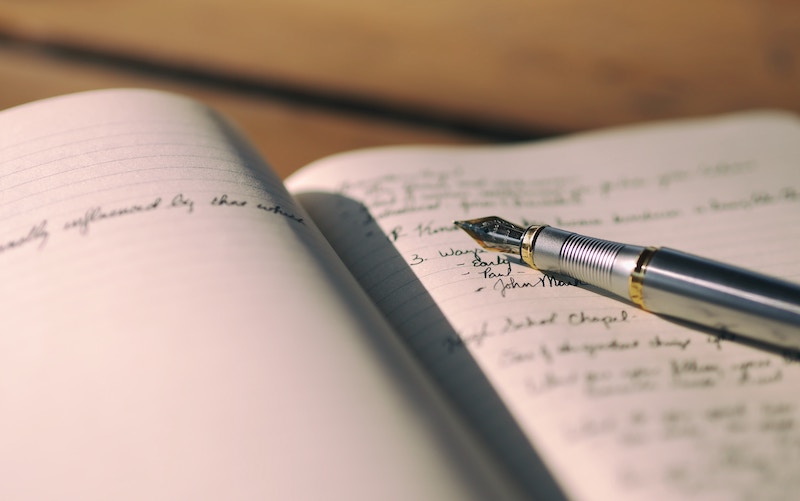Rising above Struggles
Episode #6 of the course A daily journal practice to become a better person every day by John Robin
“To succeed, it is necessary to accept the world as it is and rise above it.” —Michael Korda, novelist, and editor-in-chief of Simon & Schuster
Welcome to Lesson 6!
We’re halfway through the course. We’re also well into the most vital part of the journal, that sequence of things you do during your seven- to ten-minute reflection at the end of each day. We’ve talked about the first part, reviewing the previous day to learn from it, and the second, finding gratitude.
Now, we’re going to turn to the third item: struggles.
The Other Side of Gratitude
We begin with gratitude because when we turn to the struggles of the day, we will see them from the perspective of abundance. Instead of seeing only struggles, we see that there is a balance of good and bad.
That’s positivity at work!
We can’t ignore struggles. Doing that is just sugar-coating. Acknowledging your struggles is as important as searching for gratitude.
Finding the Top Three Things You Struggled with Today
Like with gratitude, you want to try and pick the top three struggles that stand out the most from the day.
Pick only the top three. Your car might have broken down on the way home, but if there were three other issues worse than that, then your car breaking down is less important. This limit of three makes your journal easier to review later and helps you ensure that the most important struggles are highlighted.
Pick exactly three. This challenge helps you see that even on days that seem perfect, we always have struggles, even if they are small. For example, you might realize that actually, about midday, you were really tired in the morning and pounded back three coffees just to kick yourself through the rest of the day. Or, you might realize that despite the exuberance of your new promotion at work, you were stressed out at all the new responsibility.
There are always struggles, just like there is always gratitude, to be found through mindful reflection. This is why I suggest searching for exactly three of both, so you can see a balanced perspective of your most important gratitude and struggles each day.
The Skill of Pinpointing
There are two ways to approach journaling about your struggles—a bit like passive and active gratitude or reflection:
Venting. It looks like this:
• My computer is just useless, it takes forever, and I want to throw it at the wall.
• I’m so pissed off today!
This is not what we’re looking for. What you want to see instead is pinpointing.
Pinpointing. It looks like this:
• Computer taking several minutes to load Word, clocked seven minutes total of wasted time, really turning into an efficiency issue.
• Feeling frustrated at my poor finances ever since I couldn’t afford coffee at afternoon coffee break.
Pinpointing is like rolling out dough with a rolling pin. This might remind you of what we do to get better at visualizing—i.e., when you come up with something general, try to get more specific.
Your goal is to pinpoint your struggles as sharply as possible. The better you do this, the more you’ll zoom in on exactly what areas of the struggle are in your control. This helps you think of how you might change them.
Becoming Good at Objectivity
Pinpointing is hard, but it’s worthwhile because it helps you gain another skill: objectivity.
You’ve likely heard of the word “objective.” When you seek an “objective opinion” from someone, you’re looking for an outside view. You recognize that your view might be skewed by emotions.
Being objective with yourself comes with practice, and journaling about your struggles is the training ground for this.
Specifically, pinpointing is the practice that helps you be more objective.
When you try to pinpoint your struggles, you are trying to look at your life and actions in a mirror. You are learning to step outside of yourself and see yourself as someone else might see you.
If you’ve practiced meditation, this might sound familiar. This is because gaining objectivity is an aspect of mindfulness.
When you meditate for a long period of time, you experience and cultivate what is known as mindfulness. Your thoughts and sensations are a waterfall. By objectively observing your thoughts in meditation, you begin to see outside that waterfall.
Pinpointing your struggles, then, is a meditation exercise. Treat it as such. When you sit down to highlight your top three struggles, meditate on them to get as specific as possible.
Like with every other aspect of this journaling practice, you get better at this step the more you practice every day.
Homework
When you do your next end-of-day journal session, work hard on pinpointing. If you catch yourself venting as you write about your struggles, meditate on how you can roll this out by being specific and more objective.
Tomorrow, we’ll turn to the next part: setting small, attainable intentions that you can achieve.
Recommended book
The Power of Positive Thinking by Norman Vincent Peale
Share with friends

